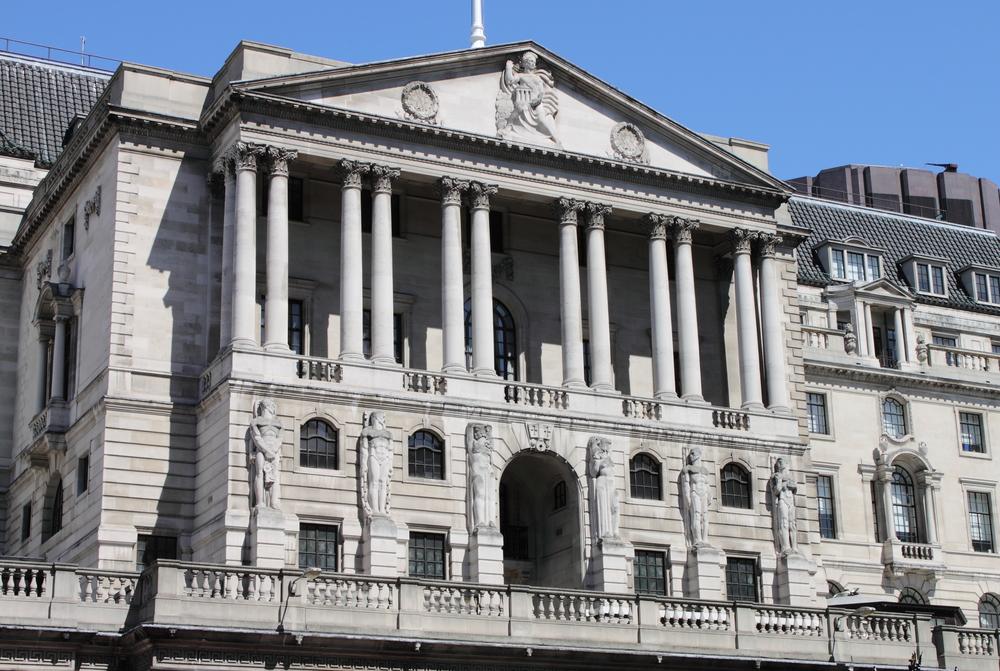Household Bills
Bank of England ‘won’t hesitate to change interest rates’ as households brace for 6%

The governor of the Bank of England said the Monetary Policy Committee “will not hesitate to change interest rates as necessary to return inflation to the 2% target” as markets forecast 6%.
In a statement, Andrew Bailey said the Bank is “monitoring developments in financial markets very closely” in light of the “significant repricing of financial assets”.
It follows on from Friday’s mini Budget which saw the government announce major tax cutting initiatives, but led to the pound sinking to a 40-year low against the dollar this morning in Asia trading.
The government then said it would set out further details on its fiscal rules, including that debt falls as a share of GDP, while the Office for Budget Responsibility (OBR) is expected to publish a full forecast as Kwarteng was unable to produce figures or analysis accompanying his stealth tax cuts. Further, the government also said there will be a Budget in the Spring.
Bailey said: “In recent weeks, the government has made a number of important announcements. The government’s energy price guarantee will reduce the near-term peak in inflation.
“Last Friday, the government announced its growth plan, on which the chancellor has provided further detail in his statement today. I welcome the government’s commitment to sustainable economic growth, and to the role of the OBR in its assessment of prospects for the economy and public finances.”
He added: “As the MPC has made clear, it will make a full assessment at its next scheduled meeting of the impact on demand and inflation from the government’s announcements, and the fall in sterling, and act accordingly. The MPC will not hesitate to change interest rates as necessary to return inflation to the 2% target sustainably in the medium term, in line with its remit.”
‘Economic policy is not a game’
According to leading think tank, Resolution Foundation, the market’s reaction to last Friday’s fiscal statement will have a “material impact on household incomes”.
In the short term through higher inflation; in the medium term through higher mortgage payments; and, in the long term as higher borrowing exacerbates tax and spending trade-offs, it said.
The foundation added that the £45bn of “unfunded tax cuts” and “lack of any detail of how they intend to ensure the sustainability of the public finances”, is putting downward pressure on the exchange rate, and upward pressure on interest rates.
As such, markets are today expecting the Bank of England to raise interest rates to hit 6% next year, up from 5% last Thursday.
“This would have a huge impact on mortgagor households – immediately for the minority on variable rate mortgages, or over time for those whose fixed rate deals come to an end”, the think tank warned. According to UK Finance data, 1.8 million households are due to roll-off fixed term mortgages next year.
The foundation calculated that for a homeowner with a £140,000 mortgage and residual maturity of 17 years – the example given by the Bank of England in the August Monetary Policy Report – rates rising to 5% would mean their monthly payments rise by around £190 relative to rates staying at 2.25%.
Interest rates of 6% would push this typical mortgage payment up by around a further £80 a month, or roughly £1,000 a year, it calculated.
Torsten Bell, chief executive of the Resolution Foundation, said: “Last Friday’s growth plan was based on the firm belief in the markets, but recent events suggest that the markets don’t share the same belief in the growth plan.
“The turmoil we are seeing matters for family finances as well as financial markets. The major moves since Friday don’t just mean the government seeing its borrowing costs rising by a further £14 billion, ultimately requiring less spending or higher taxes, they will affect family finances.
“The surge in interest rate expectations has already added another £1,000 a year to the coming increase in mortgages for a typical borrower, while sterling’s fall means more expensive imports feeding through to higher inflation and knocking yet another one per cent off our living standards.
“This is a painful reminder that economic policy is not a game.”
‘Markets need more reassurance and action’
Paul Dales, chief UK economist at consultancy Capital Economics, said “it is hard to know if this will be enough”.
He said: “It remains to be seen whether today’s statement by the government and the Bank of England will be enough to ease the markets’ fears about the government’s fiscal policy. The initial reaction in the markets, with the pound falling again after it regained some ground, suggests that the issue may not be put to bed yet. Either way, the end result will probably be interest rates rising sooner and further (perhaps from 2.25% to 5%) in the coming months.
“As the pound has fallen back since the statements, the markets may well need more reassurance and some actual action (i.e. details on the fiscal rules, a change in policy from the government and/or an interest rate hike from the Bank at an emergency meeting before 3 November). Much will depend on whether the pound continues to fall in overnight trading.”
Dales added that whatever happens in the next few days, “one thing is clear – interest rates will have to rise further than we previously thought to offset the government’s loose fiscal policy and any extra inflationary impulse from the lower pound”.
He said: “We now think there is a good chance that rates will rise from 2.25% now to a peak of 5% next year rather than 4%. That said, with a significant correction in the housing market looking increasingly likely at those rates, we think investors have gone too far in pricing in a rise in rates to a peak of 6% by mid-2023.”